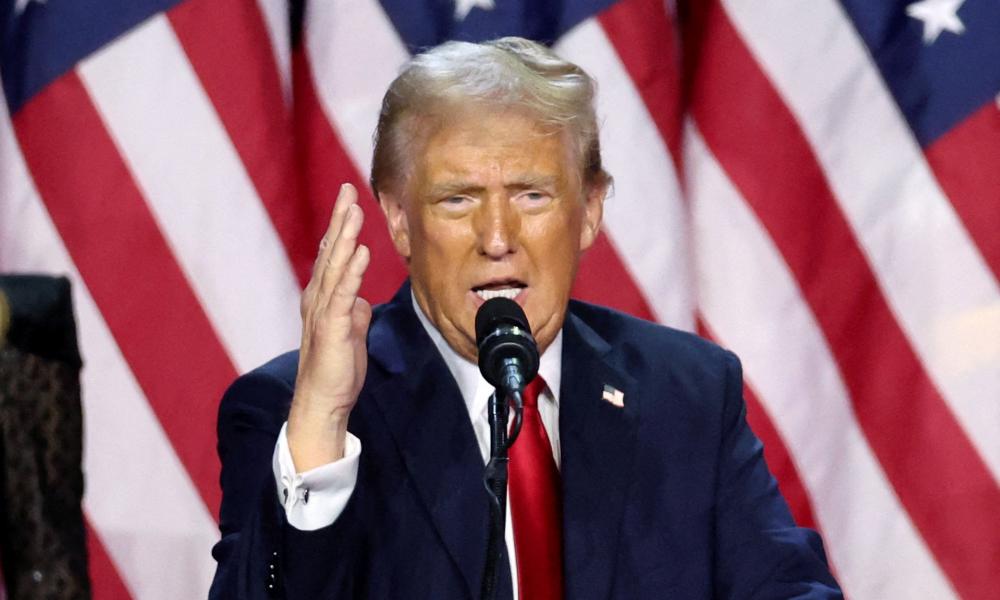The recent electoral victory of Donald Trump signals a significant upheaval in U.S. foreign policy, with the former president pledging to overhaul diplomatic practices and dismantle what he perceives as the “deep state” within the government, particularly targeting the diplomatic corps. His intentions include not only altering existing policies but also removing thousands of government workers, a move that is anticipated to disrupt the continuity of foreign affairs. As Trump prepares for a potential second term, it is likely to accelerate the Biden administration’s efforts to support Ukraine and navigate complex relations in the Middle East, particularly concerning Israel’s actions in Gaza and Lebanon, before his possible reassessment of military aid or foreign alliances takes effect.
During this anticipated transition, Trump’s approach to foreign policy in what some have dubbed “Trump 2.0” appears to be characterized by a more disciplined strategy. Reports have already surfaced about his selection of Brian Hook, a previous State Department official known for his hawkish stance, to lead the transition for America’s diplomats. However, experts and former diplomats express skepticism about the practicality of Trump’s proposed changes, arguing that the challenge lies in distinguishing his campaign rhetoric from actionable policies. Many foresee a comprehensive repudiation of President Biden’s foreign policy initiatives, indicating that the incoming administration may disregard strategic agreements and programs put in place by its predecessor.
A focal point of Trump’s strategy is his commitment to targeting officials associated with the existing foreign policy landscape. He plans to revive Schedule F, a classification aimed at reclassifying numerous federal workers as political appointees, thereby granting him the authority to dismiss them at will. This plan could have far-reaching implications for the State Department, particularly for entities focused on immigration and human rights, which Trump has previously criticized. For instance, significant departments such as the Bureau of Population, Refugees, and Migration (PRM) — which resettled a notable number of refugees in 2022 — may face severe cuts or a complete overhaul as the new administration looks to redirect resources.
Moreover, the conservative Heritage Foundation’s Project 2025 emphasizes a robust strategy for re-evaluating the practices and priorities that guide U.S. foreign aid and refugee admissions. The policy memo, authored by a key figure in Trump’s prior administration, suggests potential freezes on international agreements and resource allocations to facilitate a more stringent appraisal of existing programs. Such recommendations underline a broader aim to shift U.S. foreign policy toward a more isolationist stance, impacting longstanding commitments and humanitarian assistance that have defined American diplomacy for decades.
As the Biden administration navigates its remaining time in office, it is poised to focus on securing the $6 billion in assistance for Ukraine that has been previously allocated, while simultaneously attempting to facilitate a ceasefire in the ongoing Gaza conflict. Biden’s administration will likely find itself racing against time to stabilize diplomatic relations and reassure international allies amidst rising anxiety surrounding Trump’s upcoming presidency and potential reversals of current policies. Diplomatic officials are expected to work tirelessly to cement alliances and ensure that U.S. support for vulnerable nations remains unwavering before Trump’s anticipated policy shifts occur.
In the face of this uncertain future, anxieties about the implications of a Trump presidency pervade discussions within the international community. Analysts speculate that the Biden administration will endeavor to maintain a consistent narrative regarding its foreign policy successes and implications for global security, particularly in Europe and the context of the conflict in Ukraine. As global leaders convene at platforms like the G20 summit, they are expected to express concerns regarding U.S. engagement and the continuity of past commitments, hoping that Trump’s administration will not disravel vital international partnerships and counterproductive isolationist policies.
In summary, the implications of Trump’s anticipated second term could lead to a drastic shift in U.S. foreign policy, characterized by a potential dismantling of existing state department structures, a reevaluation of international commitments, and heightened tensions in critical global arenas. The Biden administration’s final efforts to solidify international partnerships and maintain stability will likely clash with Trump’s proposed policies that could undermine decades of diplomatic progress. As both administrations grapple with these unfolding scenarios, the global community is left in a precarious state of uncertainty regarding the future of international relations under a reconfigured U.S. leadership.

